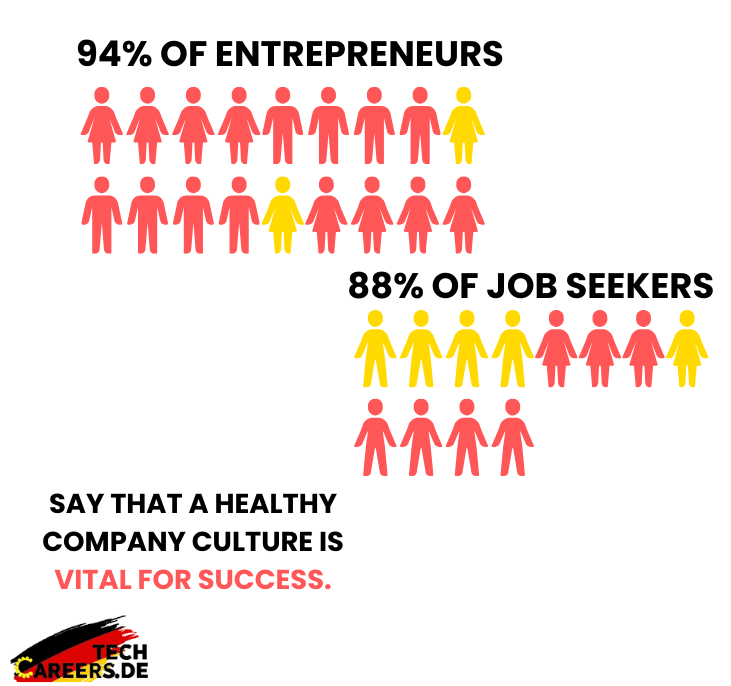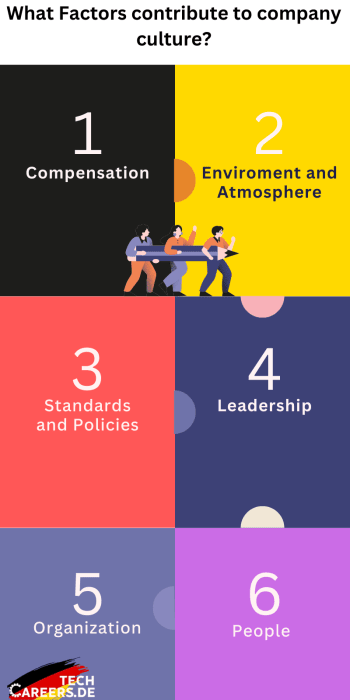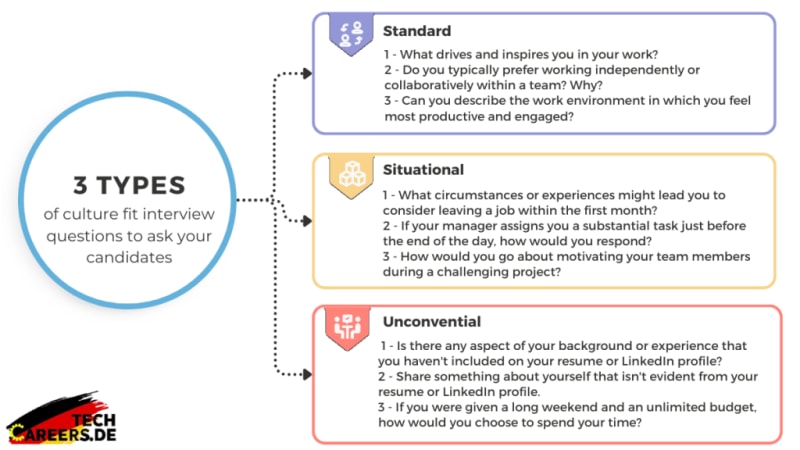In an era where workplace culture dominates supreme, it is the human touch that truly distinguishes companies like yours as extraordinary places to thrive.
While 46% of job seekers consider workplace culture a significant influencer an astounding 94% of entrepreneurs and 88% of job seekers alike emphasize the indispensable role of a healthy company culture in achieving success.
Today as the job market evolves the emphasis on hiring for organizational culture fit has never been more pronounced. However, there’s a paradigm shift underway. “Culture add” is emerging as the new yardstick and surpassing “culture fit” insignificance. For recruiters and hiring managers navigating this landscape and understanding the merits of each approach is essential.
In essence, while culture fit recruitment remains crucial there’s a growing recognition that “culture add” brings unique value to the table. As we reimagine the hiring process striking a balance between the two becomes paramount for creating vibrant and sustainable organizational cultures.
What Is Culture Fit?
Organizational culture fit embodies the shared values ethics expectations and operational norms that unite employees within a company—a fusion of characteristics defining its corporate ethos.
When comprehended by the talent pool this cultural alignment becomes a magnet for attracting precisely the caliber of individuals sought after.
A robust corporate culture transcends individual contributions and instills a sense of belonging and purpose beyond personal endeavors.
Embracing the culture becomes integral to advancing the company’s mission often resulting in heightened performance metrics and bolstered allegiance to the organization.
Conversely, toxic workplace cultures exemplified vividly by WeWork’s saga chronicled in the documentary series WeCrashed wreak havoc.
Not only do these environments breed dysfunction but their detrimental ripple effects on productivity operational efficiency and staff engagement impede the realization of business objectives.
Continuing in our journey together let’s delve deeper into the realm of cultural fit recruiting and the pivotal role it plays in shaping a company’s trajectory. By aligning candidates’ values aspirations and work styles with the prevailing organizational culture and cultural fit interviews become transformative gateways to building cohesive and high-performing teams.
Our commitment to hiring for culture fit underscores our dedication to nurturing an environment where every individual thrives and contributes meaningfully to our collective success.
How To Determine Cultural Fit In The Interview
Determining cultural fit during interviews is pivotal for building cohesive teams and a thriving work environment. Here are some strategies to gauge cultural fit effectively:
- Define your company culture : Clearly outline your company’s values mission and work environment. This serves as a benchmark for assessing a candidate’s alignment with your cultural ethos.
- Ask behavioral questions: Pose situational or behavioral questions that probe the candidate’s past experiences and actions in alignment with your company’s cultural expectations. For example, inquire about how they handled challenges or collaborated with team members.
- Observe communication style: Pay attention to the candidate’s communication styles and interpersonal skills. Assess whether they demonstrate respect adaptability and empathy—essential traits for cultural harmony.
- Discuss cultural fit solutions : Engage candidates in discussions about potential cultural challenges they foresee and how they would navigate them. This demonstrates their awareness of cultural nuances and problem-solving abilities.
- Seek feedback: involve multiple interviewers representing diverse perspectives in the process. Gather feedback on the candidate’s interview cultural fit from various stakeholders to ensure a comprehensive assessment.
- Evaluate values alignment: Probe the candidate’s alignment with your company’s core values and beliefs. Assess whether their personal and professional aspirations resonate with your organizational culture.
- Assess team dynamics: Consider how candidate’s personalities and work styles complement existing team dynamics. Aim to hire to fit the company culture and build a diverse yet cohesive team that thrives in your cultural ecosystem.
By incorporating these strategies into your interview process you can identify individuals who not only possess the requisite skills but also seamlessly integrate into your company’s cultural fabric.
Interview Questions To Determine Cultural Fit
The cultural fit interview serves as a crucial opportunity to assess whether a candidate aligns well with your organization’s culture. It’s essential to focus on culturally fit interview questions that delve into the candidate’s work style and collaboration preferences ideal work environment communication skills and more.
These inquiries aid in determining whether the candidate not only fits into your company culture overall but also integrates seamlessly into the specific team or department you’re hiring for.
Recruiting for cultural fit involves seeking candidates who share the same values as your company and ensuring mutual alignment and understanding. For instance, if you are hiring for a pet food company you’d likely prefer candidates who have a passion for pets. Similarly, for a boutique consultancy, you’d seek individuals with a hard-working and dedicated demeanor.
In hiring tech talent the cultural fit interview becomes even more critical. Besides technical skills, it is essential to gauge the candidate’s compatibility with your company’s values team dynamics, and a work environment. By prioritizing cultural fit in the hiring process you can build a cohesive team that thrives within your organization’s unique cultural ecosystem.
5 Examples Of Interview Questions To Determine Cultural Fit
- What work schedule suits you best?
- Do you thrive more independently or as part of a team?
- What conditions or practices enable you to achieve peak productivity?
- Reflecting on your previous employment what aspects did you appreciate most and least about the company culture?
- Describe your preferred approach to leadership.
Why Company’s Brand Is So Important?
When hiring one very important point is often missed the employer’s brand. In the competitive landscape of tech recruitment where top talent is the ultimate currency employer branding emerges as a game changer.
The strategic cultivation of an employer brand not only attracts skilled professionals but also retains them in the long run.
Let’s delve into how tech employer branding contributes to recruitment, particularly for the most in-demand tech jobs.
Attraction of talent : Employer branding serves as a magnetic force and draws in top talent from the vast pool of tech professionals. Showcasing a compelling company culture and values growth opportunities and employer branding resonates with individuals seeking alignment with these aspects. In the realm of highly competitive tech roles where candidates have abundant options, a strong employer brand stands out as an attractive proposition.
Retention of tech talent** :** Beyond attracting talent employer branding plays a crucial role in retaining tech professionals. A well-defined employer brand cultivates a sense of belonging and pride among employees and drives engagement and loyalty. In the fast-paced tech industry where turnover rates can be high and a strong employer brand acts as a stabilizing force reducing attrition and ensuring continuity in talent retention.
Alignment with candidate expectations: In the pursuit of most in demand tech jobs candidates prioritize companies that align with their values, aspirations, and work culture. Employer branding bridges this gap by providing transparency and clarity about what the company stands for. By effectively communicating its employer brand an organization can attract candidates who resonate with its ethos leading to higher job satisfaction and retention rates.
Competitive differentiation: In a crowded marketplace for tech talent employer branding serves as a powerful tool for differentiation. Companies with a strong employer brand stand out as desirable employers and set themselves apart from competitors. This differentiation not only attracts top talent but also enhances the company’s reputation within the tech community. In the race to secure the most in demand tech jobs, a compelling employer brand can be the deciding factor for candidates weighing their options.
Enhanced recruitment process: Employer branding enriches the tech talent recruitment process by creating a positive candidate experience. From the initial interaction with the company’s brand to the interview process and beyond candidates are influenced by their perceptions of the employer brand. A well-crafted employer brand ensures that candidates feel valued and respected throughout the recruitment journey contributing to higher acceptance rates and improved employer brand advocacy.
In conclusion, employer branding is instrumental in recruitment for the most in demand tech jobs. By effectively leveraging employer branding strategies companies can attract retain and engage top tech talent and gain a competitive edge in the talent marketplace. As the tech industry continues to evolve employer branding will remain a cornerstone of successful recruitment strategies and shaping the future of talent acquisition in this dynamic field.
Great Company Culture Examples
Patagonia
Did you know that at Patagonia recruiters have a unique approach to reviewing resumes? They start by reading them upside down and beginning with the interests and hobbies section. They aim to understand how candidates utilize outdoor gear to uncover their passions and most importantly assess if they share the company’s deep appreciation for nature and outdoor activities during their leisure time. This unconventional method allows recruiters to gauge whether candidates not only align with the company’s collective love for the outdoors but also bring their unique perspectives and insights to the table.
/*! elementor - v3.21.0 - 22-05-2024 */
.elementor-widget-video .elementor-widget-container{overflow:hidden;transform:translateZ(0)}.elementor-widget-video .elementor-wrapper{aspect-ratio:var(--video-aspect-ratio)}.elementor-widget-video .elementor-wrapper iframe,.elementor-widget-video .elementor-wrapper video{height:100%;width:100%;display:flex;border:none;background-color:#000}@supports not (aspect-ratio:1/1){.elementor-widget-video .elementor-wrapper{position:relative;overflow:hidden;height:0;padding-bottom:calc(100% / var(--video-aspect-ratio))}.elementor-widget-video .elementor-wrapper iframe,.elementor-widget-video .elementor-wrapper video{position:absolute;top:0;right:0;bottom:0;left:0}}.elementor-widget-video .elementor-open-inline .elementor-custom-embed-image-overlay{position:absolute;top:0;right:0;bottom:0;left:0;background-size:cover;background-position:50%}.elementor-widget-video .elementor-custom-embed-image-overlay{cursor:pointer;text-align:center}.elementor-widget-video .elementor-custom-embed-image-overlay:hover .elementor-custom-embed-play i{opacity:1}.elementor-widget-video .elementor-custom-embed-image-overlay img{display:block;width:100%;aspect-ratio:var(--video-aspect-ratio);-o-object-fit:cover;object-fit:cover;-o-object-position:center center;object-position:center center}@supports not (aspect-ratio:1/1){.elementor-widget-video .elementor-custom-embed-image-overlay{position:relative;overflow:hidden;height:0;padding-bottom:calc(100% / var(--video-aspect-ratio))}.elementor-widget-video .elementor-custom-embed-image-overlay img{position:absolute;top:0;right:0;bottom:0;left:0}}.elementor-widget-video .e-hosted-video .elementor-video{-o-object-fit:cover;object-fit:cover}.e-con-inner>.elementor-widget-video,.e-con>.elementor-widget-video{width:var(--container-widget-width);--flex-grow:var(--container-widget-flex-grow)}
Microsoft
Microsoft is renowned for various reasons and one of them is its unwavering commitment to cultivating a top-tier company culture that promotes both personal and professional development promotes positive customer interactions and embraces diversity. Echoing this sentiment their culture page emphasizes “We will only achieve our mission if we live our culture.” It comes as no surprise and then Microsoft claims the top spot as the company with the most esteemed culture and as rated by its employees.
Key Takeaways
- Organizational culture encompasses a company’s shared values, expectations, and daily work practices, distinct from social gatherings or company-sponsored events.
- A cultural fit interview allows hiring managers to evaluate a candidate’s alignment with the company’s culture and assess additional traits and values they bring to the team.
- Organizational culture holds significance for multiple reasons, including promoting workplace diversity and inclusion, promoting innovation and adaptability, mitigating homogeneity, attracting a diverse pool of applicants, and enhancing overall company performance.
- Leverage skill assessments to evaluate the soft skills new hires will contribute to the team and their alignment with your organization’s culture. This method stands out as one of the most dependable indicators of prospective job performance.
The post How to Hire for Cultural Fit: Interview Questions for Techs first appeared on Tech-careers.de.








Top comments (0)